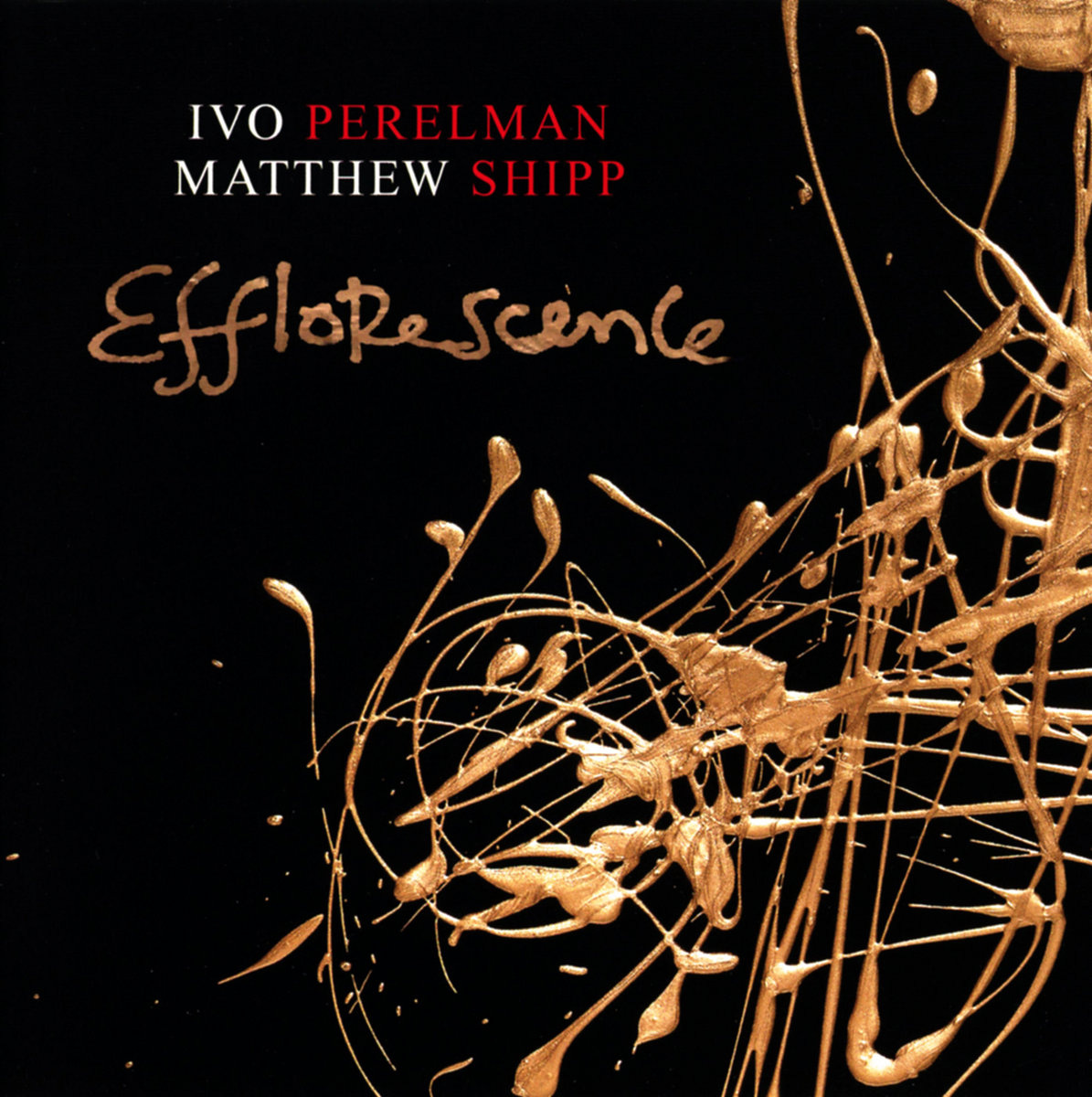Tenor saxophonist Ivo Perelman and pianist Matthew Shipp have made something like 50 albums together, in all sorts of circumstances and configurations. Studio albums, live albums, duos, trios, and quartets. Last year, I interviewed them both for a feature in We Jazz magazine. We discussed how their now decades-long creative partnership began:
“I was having lunch in the East Village with friends,” Perelman recalls. “And we were talking about music and jazz, and the waitress, who happened to be Matt’s wife, overheard the conversation, and she said something to the effect of, Well, you must know my husband, Matthew Shipp. I said, Oh, yeah, I love his playing but I have never met him, you know, and I’d love to. And then I think we exchanged numbers or something…and I called him and I just said Look, man, would you like to do a duo recording? We’re not going to be rehearsing because the themes are very short, two bars each — it’s basically free jazz and they are basically Brazilian folk songs. He said sure. Then we met and, you know, the rest is history.”
“I had known of him, and I actually had seen him play at the Knitting Factory once with one of his bands,” Shipp adds. “I liked it, but it was nothing I pursued until she said, Oh, this guy was in the restaurant and he’s a jazz sax player. And, you know, I mentioned you and he seems like he really wants to play with you.”
I also wrote about how that relationship has developed, and where it’s at now:
The Perelman/Shepp catalog is distinct because the two men are unique voices on their respective instruments, and because those voices have evolved in parallel over the course of more than a dozen years.
Perelman’s approach to the saxophone is one of extremes. The tenor is his only horn, and he knows it inside and out. He’s capable of descending to the lowest register, roaring and groaning with the volume and power of David S. Ware or Pharoah Sanders, but he’s just as comfortable rising to the ecstatic, squealing heights scaled by David Murray and Albert Ayler. And his music is entirely improvised, which might lead a listener to expect wild flights of gospelized squall. But in fact, Perelman’s playing is extraordinarily disciplined. He rarely screams; instead, he murmurs and suggests possibilities before moving on, his lines coming up from a seemingly bottomless well of ideas.
This makes him a perfect partner for Shipp, whose heavy chords and melodic cells, laid down like bricks in a wall, manifest an equal but entirely different kind of discipline, one with an almost cosmic meditativeness at its heart. What the pianist plays seems like it could provide a foundation, but it doesn’t. This is duo music built not out of cooperation but simultaneity. They are obviously listening to each other, but neither is ever subservient to the other, nor does one man attempt to take the lead. And in the space created by that mutual independence, a third entity forms.
Perelman says this is “the biochemistry of this duo…not only do we have a symbiotic and inexplicable working relationship as a duo, spontaneous, that has a life of its own, but…both of us, individually, in our own paths, have that drive and urge to grow. And we are not happy to just be stale and stabilized. We need to keep breaking ground according to our own criteria, our own set of rules that we establish for ourselves.”
He adds, “If I was the only one trying to get out of my own schtick, that would already be very healthy for the music. But imagine there’s another guy that’s doing the same. So when together, then it just becomes huge, you know?”
You can still buy the whole issue from We Jazz.
Perelman and Shipp’s most grandiose project to date has been Efflorescence, a 4CD set of duos released on Leo in 2019. It offers 49 tracks, each one named for a flower — three and a half hours of music in all. That may seem like a lot, and if you try to binge the whole thing all at once, you won’t really get the full effect. You’re much better off listening to one disc in a sitting, then coming back a day later for more.
What I love about this set is the way it’s simultaneously new all the time — every track is different, and inspired in its own way — and instantly identifiable as the work of these two men. Both are absolute masters of their instrument, and have voices that are entirely their own, but they impact each other in profound ways. Perelman’s innate romanticism is up front even when he’s squealing in the tenor’s uppermost register, as he does often here, and he brings that out of Shipp as well; there’s a tenderness to the pianist’s playing here that’s not present when he’s working with any other partners.
Spend the $25 on Efflorescence. You won’t regret it.
If you’re a free subscriber, this is where today’s newsletter ends. If you’re a paying subscriber, stick around for an article on Brian Eno, a couple of fascinating book reviews, and some recently restored live video of David Bowie at his artistic peak.
Keep reading with a 7-day free trial
Subscribe to Burning Ambulance to keep reading this post and get 7 days of free access to the full post archives.


